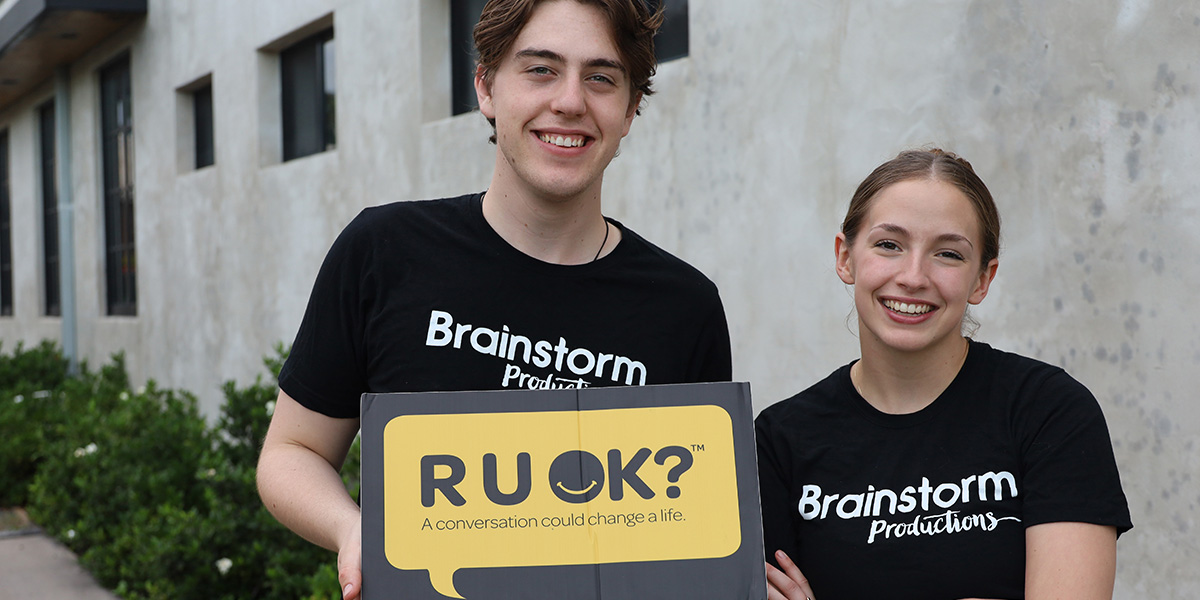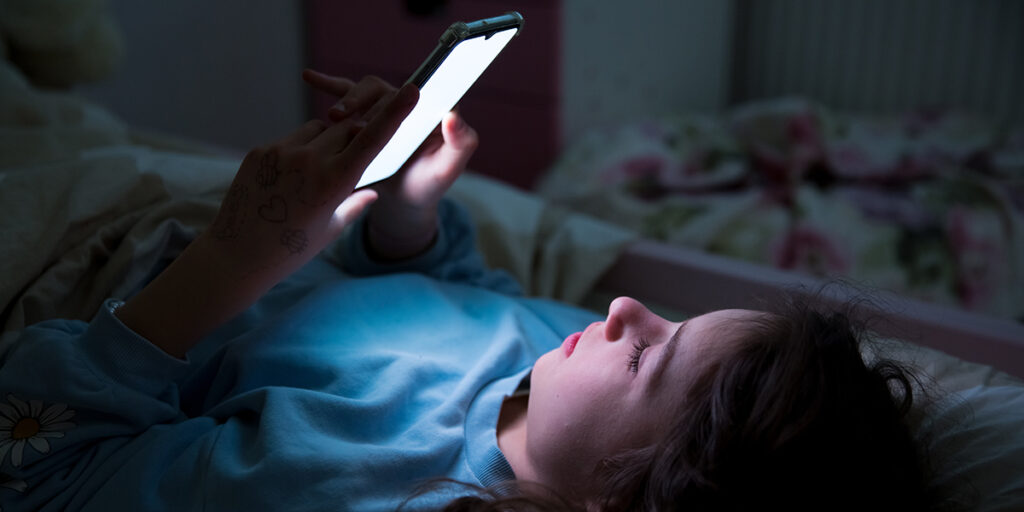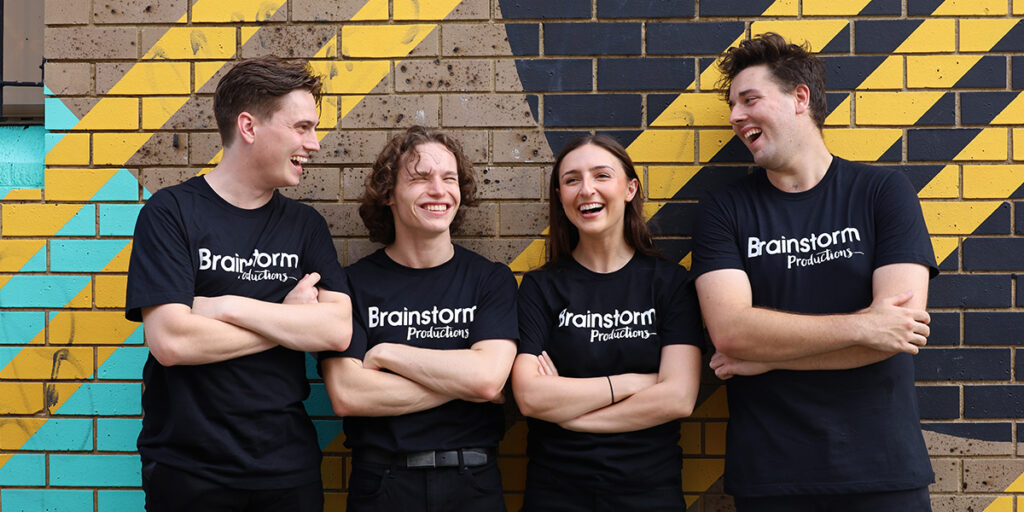Thursday 8 September is R U OK?Day – a national day of action that reminds us all to stay connected and make asking ‘are you OK?’ a part of our daily lives. By genuinely asking ‘are you OK?’, and being prepared to really listen, we can all help someone feel connected and supported, before they’re in crisis.
You don't need to be an expert to ask "Are you OK?"
R U OK?’s research found that four in 10 Australians believe asking someone, ‘are you OK?’ is a conversation better had with an expert. While the work of health professionals is vital, and their value cannot be underestimated, we all have a role to play in building more connected communities and supporting people who are doing it tough. Just listening and giving someone your time might be just what they need to help them through.
Young people are most likely to turn to friends and family as the first step in getting help. So it’s important for students to have the skills and confidence to safely support their peers and seek help when needed, and to know that they have the capacity to make a difference.
Tips to get the conversation started
We all have what it takes to ask “are you OK?”. Just listening and showing you care can have a big impact on the life of someone who’s struggling. But if you’re looking for ideas, here are some tips to help get the conversation going.
1. Ask "Are you OK?"
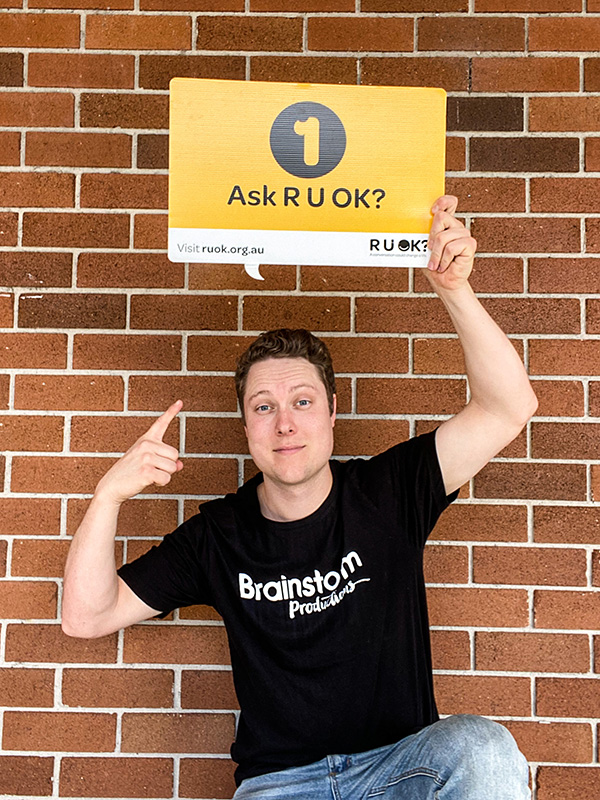
Start the conversation at a time and in a place where you’ll both be comfortable. This might be while walking to school, chatting on social media or playing games online.
Be relaxed and friendly in your approach and think about how you can ease into the conversation. You could start by letting them know you’ve noticed a change. You might say something like:
“I haven’t seen you much lately, is everything OK?”
“You seem a bit stressed out at the moment. Do you want to talk about what’s going on?”
“You’ve missed training a few times, do you feel like having a chat?”
2. Listen with an open mind
Once you’ve started the conversation, let them speak in their own time. You don’t need to have the answers or solve the problem. Just take a breath and listen with an open mind.
Reflect back what they’ve said in your own words, to let them know you’re listening and to check your understanding. You might like to ask some open ended questions, to help them explain what’s going on and how they’re feeling. For example:
“It sounds like you’re dealing with a lot. Do you want to tell me more?”
“That sounds tough. How have you been coping?”
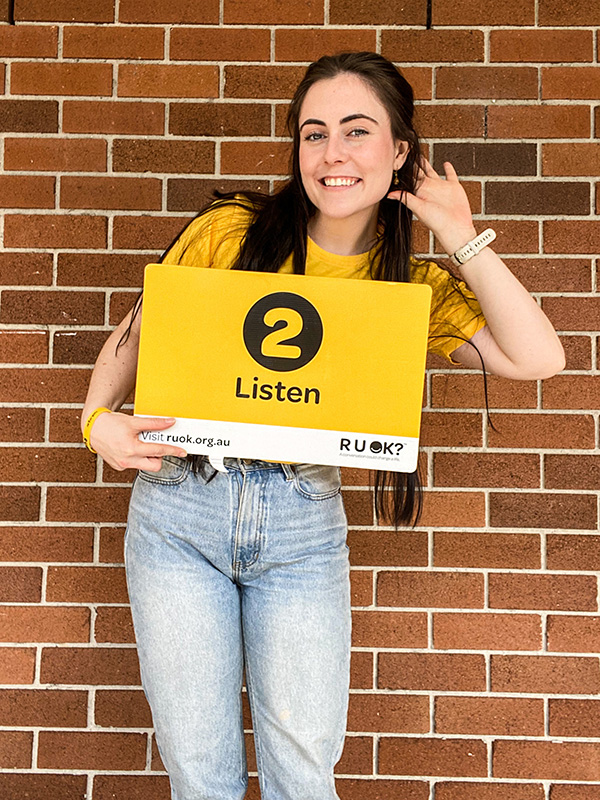
3. Encourage action
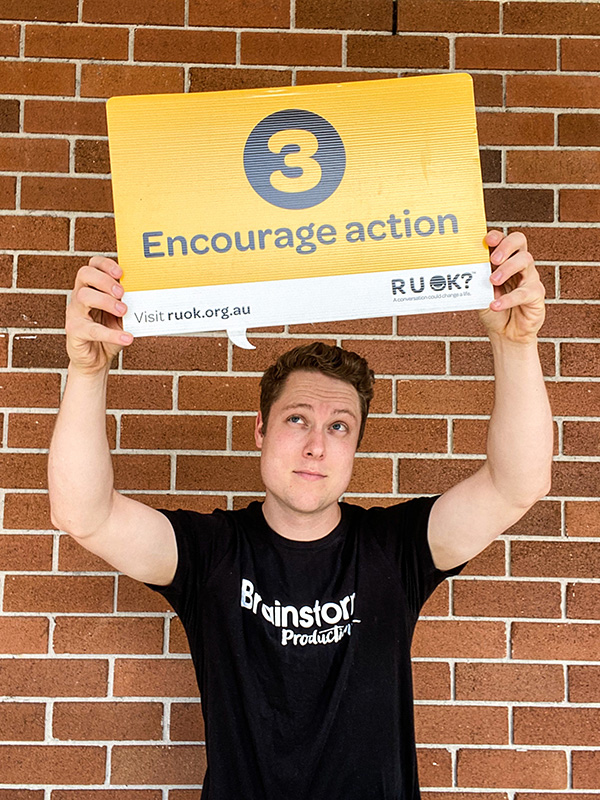
Once they’ve opened up, let them know you’re there to help. You don’t need to fix their problems, but you can encourage them to identify at least one action that might improve their situation. This could be talking to family, a trusted friend, their doctor or another health professional, or doing something that’s helped them in the past.
You could try asking:
“Is there someone else you’d feel comfortable talking to about this?”
“What usually helps when you’re feeling down?”
“What do you need from me? How can I help?”
4. Check in
Remember to check in and see how the person is doing. Ask how they’re feeling since your last chat and if they’ve done something that has helped their situation, no matter how small.
Keep in mind that it can take a long time for someone to be ready to seek professional help. Be positive about the role that healthcare professionals can play in supporting them. If they’ve had a bad experience in the past, encourage them to keep trying until they find the right help.
For more information about professional support services, visit ruok.org.au/findhelp.
Stay connected and keep checking in. Let them know you’re there for them if they need to talk.
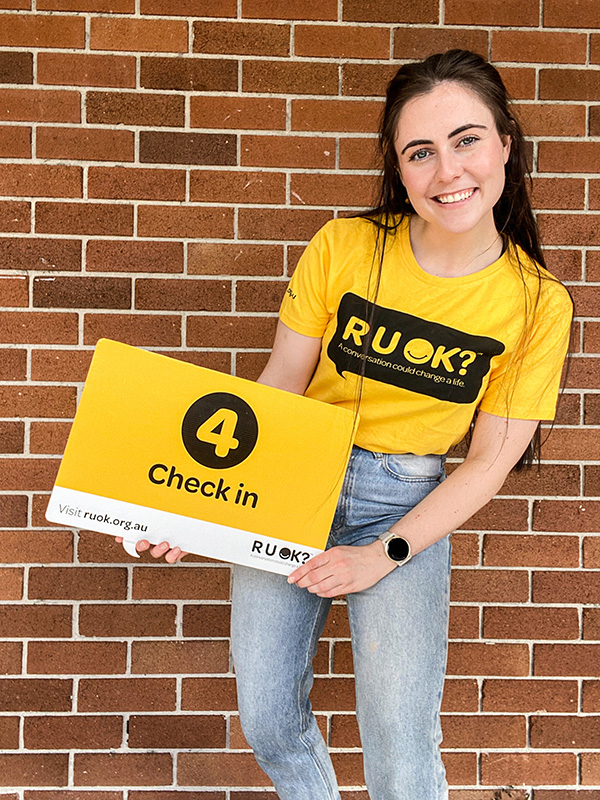
Getting the message out there
Brainstorm Productions has been an R U OK? school partner since 2014. We’re passionate about sharing the R U OK? message in Australian schools, empowering students to stay connected, support their friends and classmates, and seek help from family, school staff, healthcare professionals and other trusted adults.
Our live performances are designed to support each school’s existing student wellbeing programs and promote mental health and wellbeing in schools, families and communities.
R U OK? also has a bunch of great resources for educators, to further support student wellbeing at your school.
If you or someone in your life needs crisis or emotional support, you can contact Kids Helpline (1800 55 1800), headspace or Lifeline (13 11 14), or you can go to ruok.org.au/findhelp.
R U OK? is a national charity dedicated to inspiring all of us to have regular, meaningful conversations to support anyone going through a difficult time. You can learn more at ruok.org.au.

